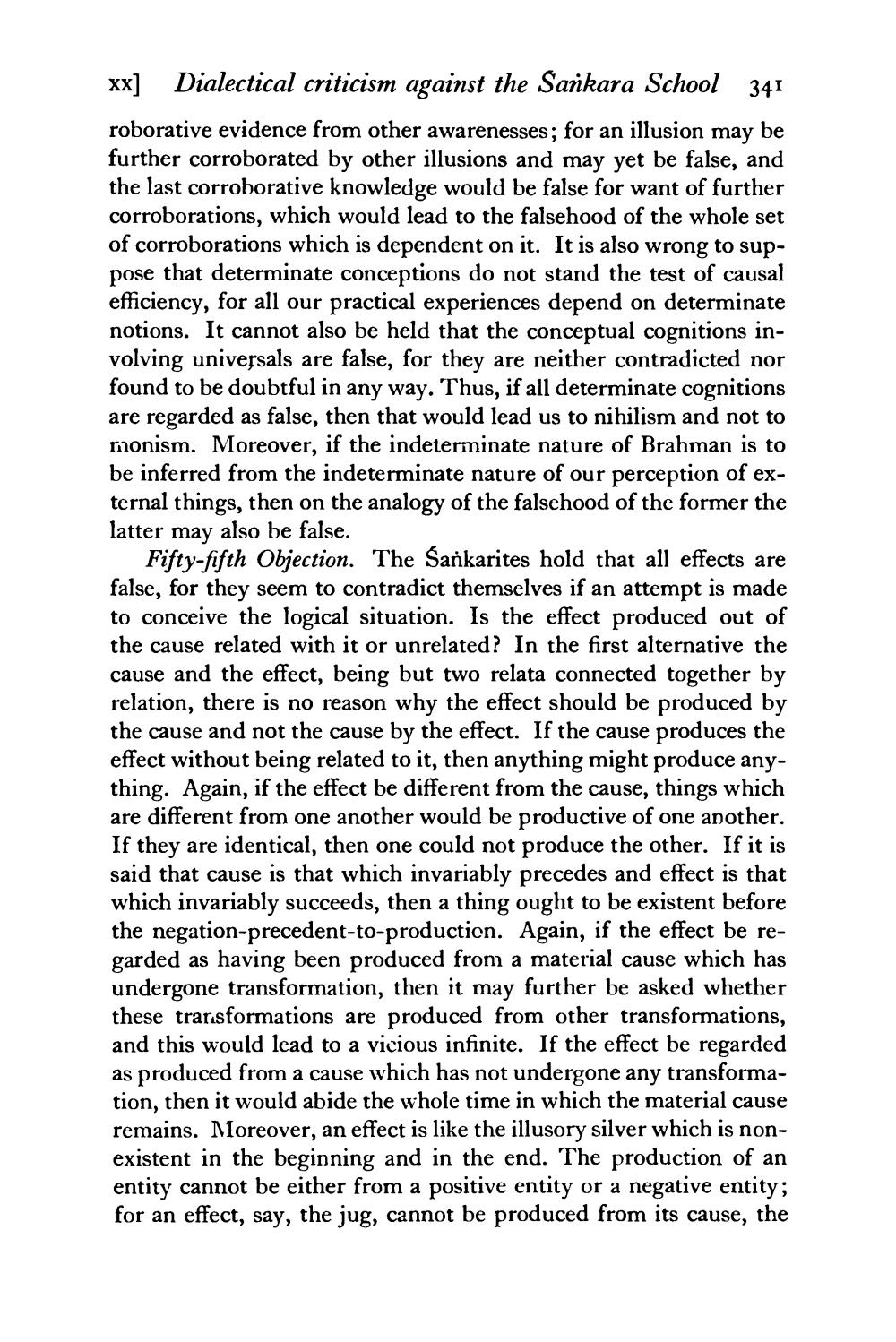________________
xx]
Dialectical criticism against the Sankara School 341
roborative evidence from other awarenesses; for an illusion may be further corroborated by other illusions and may yet be false, and the last corroborative knowledge would be false for want of further corroborations, which would lead to the falsehood of the whole set of corroborations which is dependent on it. It is also wrong to suppose that determinate conceptions do not stand the test of causal efficiency, for all our practical experiences depend on determinate notions. It cannot also be held that the conceptual cognitions involving universals are false, for they are neither contradicted nor found to be doubtful in any way. Thus, if all determinate cognitions are regarded as false, then that would lead us to nihilism and not to monism. Moreover, if the indeterminate nature of Brahman is to be inferred from the indeterminate nature of our perception of external things, then on the analogy of the falsehood of the former the latter may also be false.
Fifty-fifth Objection. The Sankarites hold that all effects are false, for they seem to contradict themselves if an attempt is made to conceive the logical situation. Is the effect produced out of the cause related with it or unrelated? In the first alternative the cause and the effect, being but two relata connected together by relation, there is no reason why the effect should be produced by the cause and not the cause by the effect. If the cause produces the effect without being related to it, then anything might produce anything. Again, if the effect be different from the cause, things which are different from one another would be productive of one another. If they are identical, then one could not produce the other. If it is said that cause is that which invariably precedes and effect is that which invariably succeeds, then a thing ought to be existent before the negation-precedent-to-production. Again, if the effect be regarded as having been produced from a material cause which has undergone transformation, then it may further be asked whether these transformations are produced from other transformations, and this would lead to a vicious infinite. If the effect be regarded as produced from a cause which has not undergone any transformation, then it would abide the whole time in which the material cause remains. Moreover, an effect is like the illusory silver which is nonexistent in the beginning and in the end. The production of an entity cannot be either from a positive entity or a negative entity; for an effect, say, the jug, cannot be produced from its cause, the




